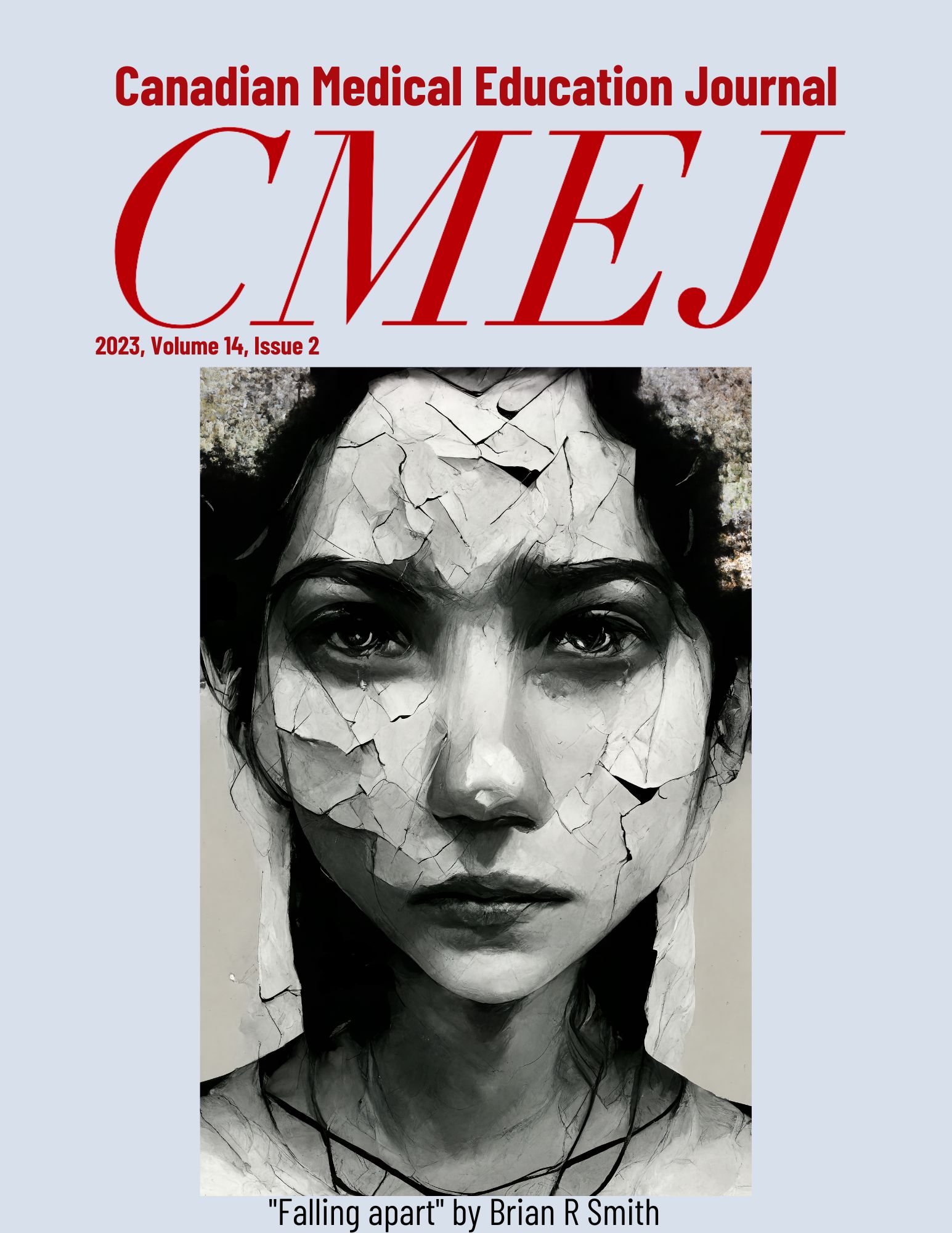Implementing experiential learning logs addressing social accountability into undergraduate medical clerkship education
DOI:
https://doi.org/10.36834/cmej.73907Abstract
Implication Statement
Medical schools have a responsibility to ensure students meet and advocate for the needs of the community. However, addressing the social determinants of health is not always emphasized in clinical learning objectives. Learning logs are useful tools that can engage students to reflect on clinical encounters and direct students in their learning to target the development of highlighted skills. Despite their efficacy, the use of learning logs in medical education is largely applied towards biomedical knowledge and procedural skills. Thus, students may lack competence to address the psychosocial challenges involved in comprehensive medical care. Social accountability experiential logs were developed for third year medical students at the University of Ottawa to address and intervene on the social determinants of health. Students completed quality improvement surveys and results demonstrated this initiative to be beneficial to their learning and contributed to greater clinical confidence. Experiential logs in clinical training can be adapted across other medical schools and tailored to fit the needs and priorities of each institution’s local communities.
References
Health Canada 2001. Social accountability: a vision for Canadian medical schools. Ottawa: Health Canada. Category No.: H39-602/2002. https://afmc.ca/future-of-medical-education-in-canada/medical-doctor-project/pdf/sa_vision_canadian_medical_schools_en.pdf.
Compton MT, Shim RS. The social determinants of mental health. Focus. 2015;13(4): 419-425. https://doi.org/10.1176/appi.focus.20150017
Hubinette M, Dobson S, Scott I, Sherbino J. Health advocacy. Med Teach. 2017;39(2):128-135. https://doi.org/10.1080/0142159X.2017.1245853
Patil NG, Lee, P. Interactive logbooks for medical students: are they useful? Med Ed. 2002;36:672-677. https://doi.org/10.1046/j.1365-2923.2002.01163.x
Schuttpelz-Brauns K, Marciss E, Schneyinck C, et al. Twelve tips for successfully implementing logbooks in clinical training. Med Teach. 2016;38:564-569. https://doi.org/10.3109/0142159X.2015.1132830
Blake K. The daily grind – use of log books and portfolios for documenting undergraduate activities. Med Ed. 2001;35:1097-1098. https://doi.org/10.1046/j.1365-2923.2001.01085.x
Luft LM. The essential role of physician as advocate: how and why we pass it on. Can Med Educ J. 2017;8(3):e109-e116. https://doi.org/10.36834/cmej.36925
Downloads
Published
Issue
Section
License
Copyright (c) 2022 Oliver W Fung, Alannah Mulholland, Madeleine Bondy, Matthew Driedger, Claire E Kendall

This work is licensed under a Creative Commons Attribution-NonCommercial-NoDerivatives 4.0 International License.
Submission of an original manuscript to the Canadian Medical Education Journal will be taken to mean that it represents original work not previously published, that it is not being considered elsewhere for publication. If accepted for publication, it will be published online and it will not be published elsewhere in the same form, for commercial purposes, in any language, without the consent of the publisher.
Authors who publish in the Canadian Medical Education Journal agree to release their articles under the Creative Commons Attribution-Noncommercial-No Derivative Works 4.0 Canada Licence. This licence allows anyone to copy and distribute the article for non-commercial purposes provided that appropriate attribution is given. For details of the rights an author grants users of their work, please see the licence summary and the full licence.











